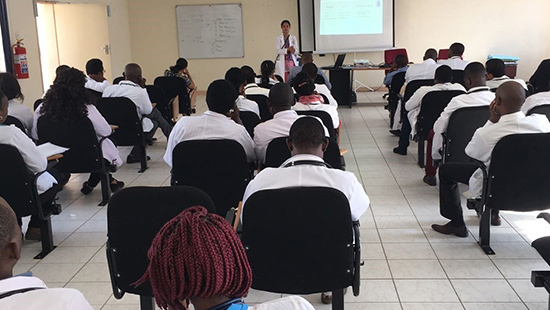Testimonials - Infectious Diseases Fellowship

We surveyed the last 5 years of University of Maryland ID fellowship graduates, and this is what they said about the strengths of the program:
- Plenty of opportunities to learn about different pathologies in different ID services, as well as a very comprehensive HIV education
- Great mentors, pathology, balance between clinical training and research
- Excellent clinical training.
- Clinical experience. Excellent clinical teachers. Very good international opportunities.
- Clinical experience
- Great faculties, variety of patient populations (Cancer, SOT, HIV, surgery), international medicine.
- Patient population. Invested program director. Services to focus learning
- Diversity of cases and faculty, opportunities for research
- Acuity of diseases. Strength of clinical faculty. Leadership in the field of HIV.
- Seeing the difference in styles of management between all the faculty and the broad range of clinical and research interests
- The training to be and infectious diseases clinician. The structure with sub-specialized clinical rotations, so you learn from attending that are experts in ID-oncology, ID-trauma, ID-ICU, etc.
- There are so many different specialties within ID that are divided into different rotations, which I think helps hone those skills all at one time, I thought this was a valuable way to learn.
- Patient diversity and volume.
- Great faculties, fellows, good variety of patients.
- Breadth of experiences within ID.
